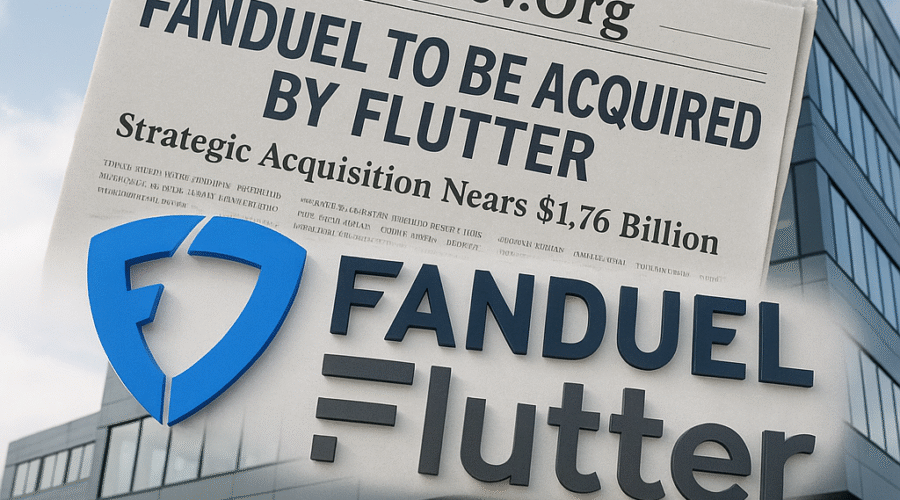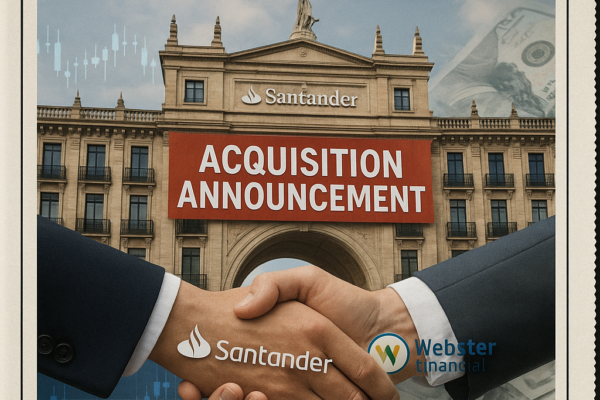Flutter Entertainment’s acquisition of Boyd Gaming’s 5% stake in FanDuel for $1.755 billion marks a pivotal consolidation in the U.S. online gambling sector, valuing FanDuel at $31 billion and granting Flutter 100% ownership. The transaction, expected to close in Q3 2025, includes revised market-access agreements generating $65 million in annual savings for Flutter while enabling Boyd to strengthen its balance sheet. This move eliminates minority interests and streamlines decision-making for FanDuel—the U.S. market leader with 43% sports betting and 27% iGaming share—amid escalating competition and regulatory pressures[2][3][4][11].
💼 M&A / PE diligence in 24 hours? Yes, thanks to AI!
Deal Architecture and Financial Engineering
Transaction Mechanics and Valuation Framework
Flutter structured the $1.755 billion consideration into two distinct components: $1.55 billion for Boyd’s 5% equity stake and $205 million for commercial-term adjustments, including revised market-access fees and the transfer of retail sportsbook operations. The $31 billion FanDuel valuation reflects a 12.5x revenue multiple based on 2024 net revenue of $5.79 billion, positioning it 25% above DraftKings’ market capitalization. Flutter financed the acquisition through a $1.75 billion senior secured term loan at SOFR + 125bps, maturing in 12 months with two six-month extension options[3][7][10][11]. This leveraged buyout temporarily increases Flutter’s debt-to-EBITDA ratio but aligns with its target range of 2.0-2.5x post-integration.
Boyd’s Strategic Monetization
Boyd Gaming monetized its 2018 investment at a 900% unrealized return, with the $1.755 billion proceeds representing 25% of its current market capitalization. The company will deploy capital toward debt reduction, property investments, and shareholder returns, projecting $50-$55 million in 2025 online segment EBITDAR. By relinquishing non-core digital assets, Boyd refocuses on its regional casino portfolio while retaining fixed-fee market-access revenue through 2038[5][6][7]. This liquidity event exemplifies how traditional casino operators can leverage strategic partnerships to capture digital growth without operational complexity.
Strategic Rationale and Synergy Realization
Flutter’s Operational Integration
Full ownership enables Flutter to consolidate FanDuel’s financials, eliminate profit-sharing, and accelerate technology integration through the “Flutter Edge” platform. The $65 million annual savings—effective July 2025—derive from renegotiated market-access fees in Indiana, Iowa, Kansas, Louisiana, and Pennsylvania, where Boyd provides iGaming and sports betting licenses. These savings offset recent tax headwinds, including Illinois’ $0.50 per-bet surcharge[4][11]. Operational control further allows cross-leveraging FanDuel’s customer acquisition engine with Flutter’s international brands like PokerStars, creating a unified global gaming ecosystem.
Corporate Governance Implications
Eliminating Boyd’s minority stake removes potential conflicts in capital allocation decisions, particularly regarding FanDuel’s $500 million annual marketing budget. Flutter CEO Peter Jackson emphasized that the 2018 FanDuel acquisition was “transformational,” with full ownership enabling streamlined strategic pivots in response to market volatility[2][11]. The simplified corporate structure also reduces regulatory friction in licensing reviews across 15 states, though Fox Corporation retains an 18.6% equity option exercisable by December 2030 at $4.5 billion—a potential future dilution scenario requiring ongoing monitoring[2][3][10].
Market Structure and Competitive Dynamics
U.S. Online Gambling Landscape
FanDuel’s dominance—43% sports betting and 27% iGaming market share—reflects first-mover advantages and brand saturation, with competitors DraftKings (30% sports betting) and BetMGM (15%) facing steeper customer acquisition costs. The Boyd transaction signals market maturation, where scale players consolidate ownership to optimize unit economics amid rising tax burdens. States like New York and Michigan now impose 50%+ tax rates on online gambling revenue, pressuring operators to pursue operational efficiencies through vertical integration[4][10].
Retail-to-Digital Transition
As part of the agreement, FanDuel will transfer operation of Boyd’s non-Nevada retail sportsbooks back to Boyd by mid-2026, reflecting a strategic retreat from capital-intensive physical venues. This aligns with Flutter’s asset-light model and contrasts with Caesars’ hybrid approach. Boyd gains control over 15 retail sportsbooks, leveraging FanDuel’s technology during the transition to build proprietary operational capabilities[2][6]. The shift underscores how land-based operators are reclaiming retail sports betting as a differentiation strategy against pure-play digital competitors.
Legal and Regulatory Considerations
Transaction Contingencies
Closing remains subject to regulatory approvals in five states where Boyd provides market access, with gaming commissions scrutinizing revised fee structures under “skin-in-the-game” regulations. Morrison Foerster represented Boyd in the transaction, navigating complex cross-jurisdictional compliance requirements, while Flutter’s in-house counsel managed licensing continuity[13][14]. The 2038 partnership extension includes fixed-fee structures that may face reevaluation if states modify third-party operator rules, introducing regulatory tail risk.
Fox’s Pending Option Exercise
Fox Corporation’s 18.6% acquisition option—exercisable at $4.5 billion by 2030—creates valuation asymmetry, as Flutter’s $31 billion FanDuel valuation implies Fox would pay a 22% discount to current fair value. Fox must obtain gaming licenses in all active FanDuel states before exercising the option, a process complicated by its media ownership conflicts. Should Fox proceed, Flutter would retain 81.4% ownership but lose exclusive control over strategic decisions[2][3][11]. This overhang represents a $5.76 billion contingent liability on Flutter’s balance sheet.
Strategic Outlook and Sector Implications
Flutter’s Capital Allocation Strategy
The acquisition aligns with Flutter’s dual focus on margin expansion and shareholder returns, complementing its $875 million share buyback program and UK cost restructuring. Full FanDuel ownership enhances strategic optionality, including potential spinoffs or secondary listings to unlock the $31 billion valuation premium. CEO Peter Jackson emphasized leveraging FanDuel’s “natural competitive advantages” to drive international expansion, particularly in markets like Brazil and India where sports betting regulations are liberalizing[2][4][11].
M&A Benchmarking
This transaction establishes a new valuation benchmark for online gambling assets at 12.5x revenue, exceeding DraftKings’ 8.2x multiple. Comparable deals include Caesars’ $4 billion acquisition of William Hill’s US operations (2021) and MGM’s $450 million buyout of LeoVegas (2022), both transacted below 5x revenue. The premium reflects FanDuel’s category leadership and Flutter’s synergistic cost advantages, setting precedent for future sector consolidation as operators target profitability over growth-at-all-costs[10][11].
Conclusion: Redefining Market Leadership
Flutter’s full ownership of FanDuel represents a strategic inflection point, converting partnership gains into operational control while optimizing capital structure. For Boyd, the transaction unlocks embedded value to fortify its regional casino dominance. The extended commercial agreement through 2038 creates mutual dependency, with Flutter securing cost-efficient market access and Boyd monetizing its regulatory footprint. As regulatory burdens intensify, this model demonstrates how land-based and digital operators can collaborate to maximize ecosystem value while retaining strategic autonomy. Investors should monitor Fox’s option exercise decision and Flutter’s leverage management as key value catalysts through 2026[2][4][6][11].
Sources
https://seekingalpha.com/news/4466776-flutters-deal-to-buy-boyd-gamings-5-stake-in-fanduel-is-called-a-win-win-situation, https://igamingbusiness.com/strategy/ma/flutter-fanduel-ownership-boyd-sell-stake/, https://www.stocktitan.net/news/FLUT/flutter-secures-100-ownership-of-fan-duel-through-new-agreement-with-hhcjy9z4miow.html, https://casinobeats.com/2025/07/11/flutter-acquires-full-fanduel-ownership/, https://www.marketbeat.com/stocks/NYSE/BYD/news/, https://www.reviewjournal.com/business/casinos-gaming/boyd-selling-fanduel-stake-for-1-75b-3394997/, https://www.gamingintelligence.com/finance/216429-boyd-gaming-agrees-to-sell-fanduel-stake/, https://next.io/news/investment/flutter-takes-full-control-fanduel-deal-with-boyd/, https://gamingamerica.com/news/13612/flutter-to-pay-boyd-gaming-nearly-18bn-for-full-ownership-of-fanduel, https://www.casino.org/news/flutter-buying-boyd-fanduel-stake-valuing-sportsbook-at-31b/, https://www.flutter.com/news-and-insights/press-releases/flutter-secures-100-ownership-of-fanduel-through-new-agreement-with-boyd/, https://www.law360.com, https://www.law360.com/articles/2363584/flutter-buys-mofo-led-boyd-s-stake-in-fanduel-for-1-76b, https://www.mofo.com/resources/news/250710-mofo-advises-boyd-gaming





